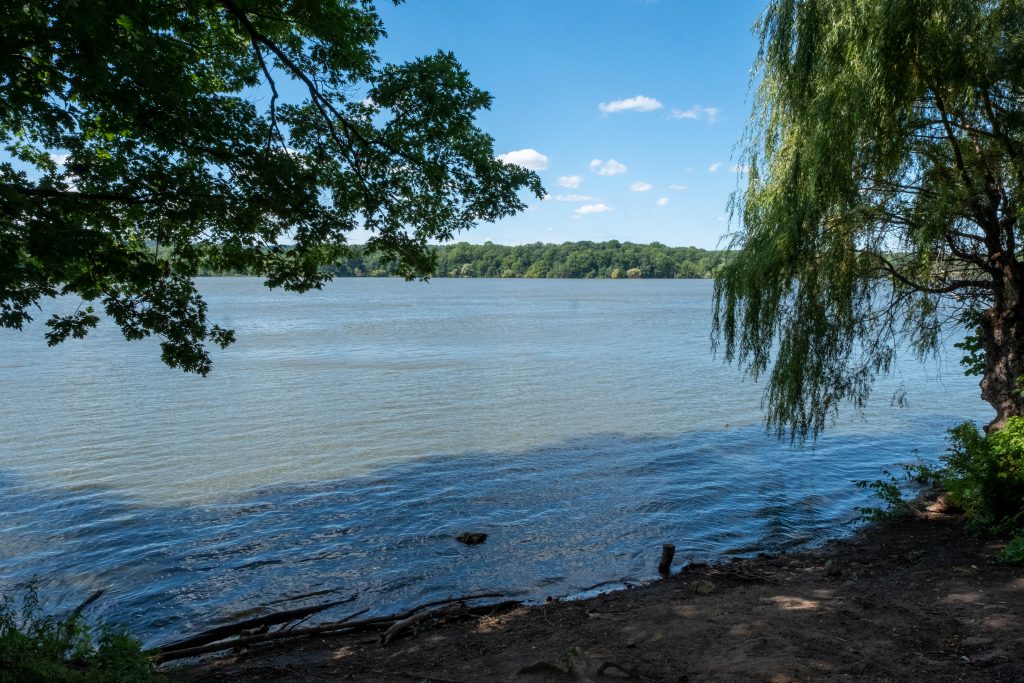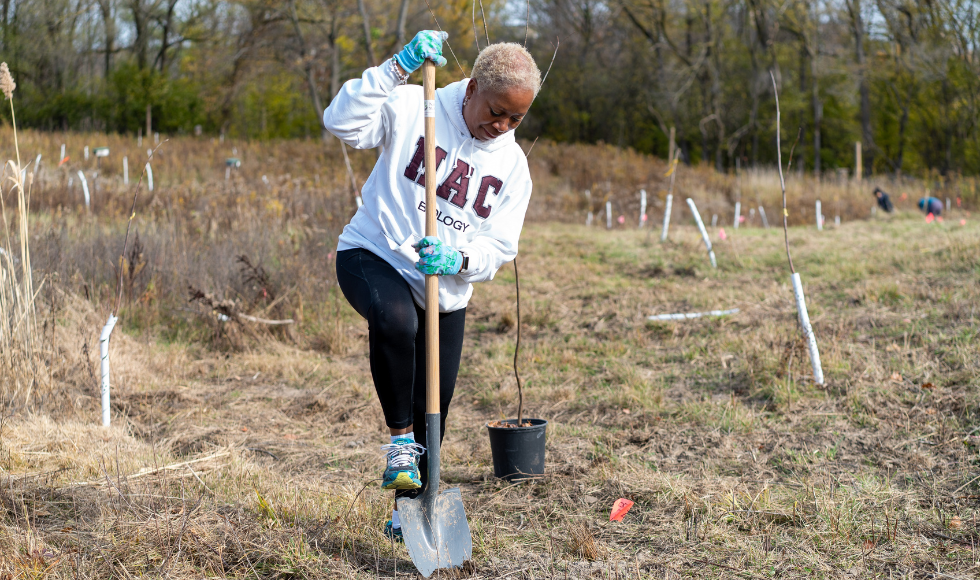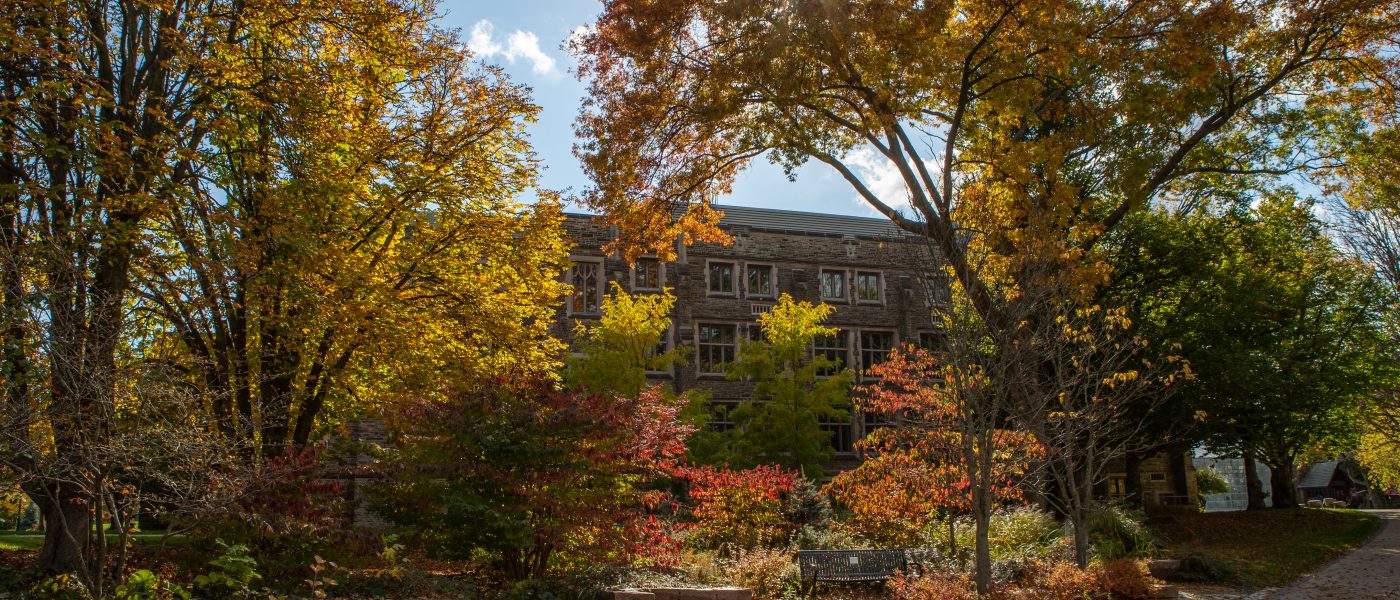
Planetary health and the community’s well-being are interconnected. McMaster is creating a self-sustaining campus and locations by focusing on promoting active transportation, protecting biodiverse ecosystems and developing self-sustaining food systems on campus that help alleviate food insecurity. Read on to learn what we accomplished together this year.
SPOTLIGHT: Parks Canada supports protecting natural lands surrounding McMaster
Parks Canada provided $3.5 million in funding to the Royal Botanical Gardens (RBG) and other members of the Cootes to Escarpment EcoPark System, including McMaster University, to support the development of ecological corridors in protected areas and parklands between Cootes Paradise and the Niagara Escarpment.
The funds will be used to protect 2,200 hectares of land and connect wildlife across a highly urbanized landscape, through initiatives such as restoring natural habitats, increasing native plants, removing invasive species and protecting wildlife. The program will also involve Indigenous communities in sharing knowledge about the land.
“This funding will enable us to continue and expand upon initiatives that protect natural lands owned by and neighbouring McMaster University,” says Wayne Terryberry, coordinator of natural lands at McMaster.
“The university’s long association with local conservation organizations ensures that McMaster’s natural backyard is protected and preserved.”
A commitment to protecting greenspace on campus and beyond is outlined in McMaster University’s Sustainability Strategy and recognized in the university’s responsibility to address the United Nations’ Sustainable Development Goals.
“As a member of the Cootes to Escarpment EcoPark System, McMaster has a responsibility to support the stewardship of natural lands on and surrounding our campus, which are home to diverse and ecologically sensitive ecosystems,” said McMaster President David Farrar. “McMaster continues to be committed to collaborating with our neighbours and partners to promote and protect this uniquely biodiverse area.”
The nine organization members include the Royal Botanical Gardens, Bruce Trail Conservancy, City of Burlington, City of Hamilton, Conservation Halton, Halton Region, Hamilton Conservation Authority, Hamilton Naturalists Club and McMaster University. The Government of Canada’s most recent nature conservation campaign aims to protect 30 per cent of Canada’s lands and waters by 2030.

Information Box Group

Eco Parks and Greenspace: Planting trees to tackle climate change Read More
More than 125 students, two dozen medical residents and students, community volunteers were joined by President David Farrar to grow the McMaster Carbon Sink Forest by planting 300 trees.
The McMaster Carbon Sink Forest in West Hamilton is the latest research initiative by the McMaster Centre for Climate Change. The centre, led by Professor M. Altaf Arain from the Faculty of Science, continuously monitors how much carbon dioxide is being pulled out of the atmosphere by each tree. That data, along with the centre’s experience in growing the forest, will be shared with researchers around the world who are growing similar forests to help mitigate the impacts of climate change.

Active and Alternative Transportation: Green transportation on campus
Facility Services has upgraded their fleet of maintenance trucks to zero-emission vehicles and will continue to prioritize the adoption of electric vehicles.
This transition will help reduce emissions on campus in alignment with McMaster’s Net Zero Carbon Roadmap. McMaster further supports green transportation by partnering with the City of Hamilton Bike Share. Racks of bicycles across campus, offers students, faculty and staff an active mode of transportation 24 hours a day, 365 days of the year.
Over the 2022-2023 academic year, over 86,000 bike rides started or ended on McMaster’s main campus.
Health and Well-being: Shaping the food system on campus Read more here
Community members were invited to share their thoughts on campus food systems to help evolve and serve our growing and diverse community. The McMaster Campus Food Charter survey included a series of questions seeking to understand what people value in “healthy” food, what would make food more accessible on campus and the degree of interest in publicly accessible kitchens, amongst other issues. The survey results have helped shape the Campus Food Charter, which will inform future strategies and actions that the university and stakeholder groups can take to foster food sovereignty. The charter is in the design stage and expected to be formalized by the end of 2023.

